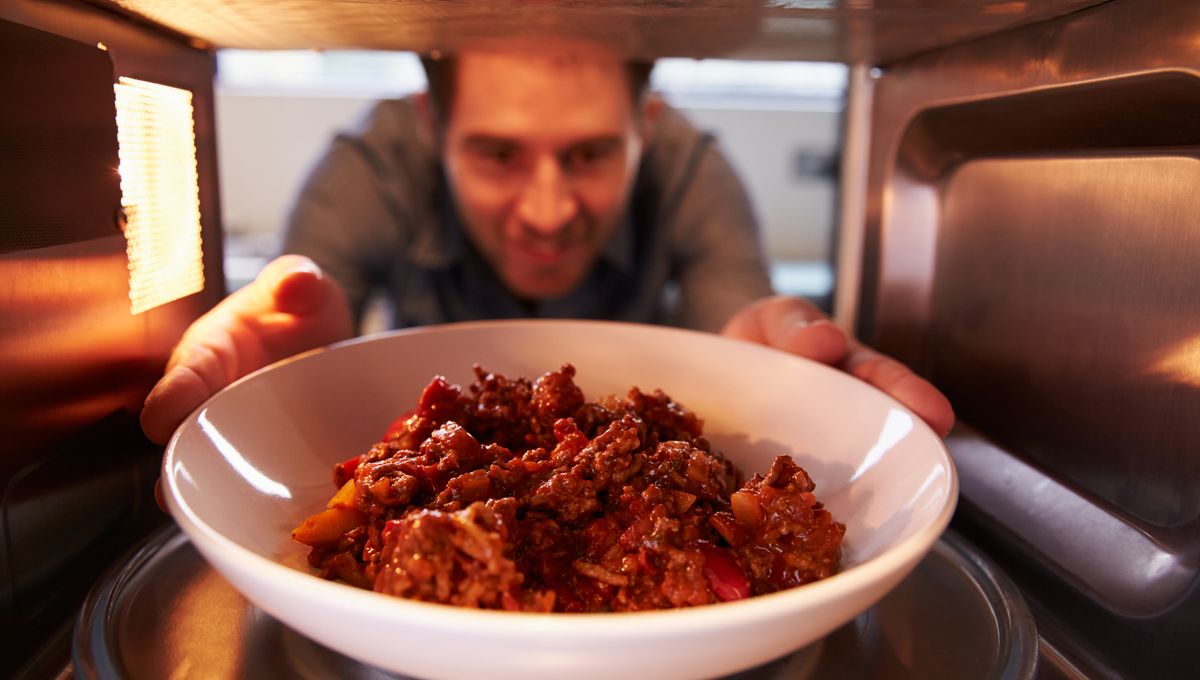
Reheated leftovers can go one of two ways: barely resuscitated into a disappointing mush or revitalized into a surprisingly flavorsome delight that’s X times better than it was last night. So why is it that some meals just always seem to taste better the day after cooking?
Cooking is basically chemistry in action. Fats render, proteins break down, bacteria pong, and the Maillard reaction gives a seared steak its chargrilled edge. While the full picture of what happens to food on a molecular level as it cools and reheats is still being uncovered, scientists do have a few theories that might explain the transformation experienced by leftovers.
One idea is that some of the harshest, most intense flavors are given time to chill out. After being cooked, sulfur-rich foods like onions, garlic, broccoli, and cabbage are allowed to oxidize, calming down their initial pungency. Oxidation is also likely to benefit other strong seasonings and spices, like turmeric, black pepper, and coriander.
Meanwhile, starchy vegetables, like potatoes, can begin to break down into sugars, offering a subtle sweetness. These starchy foods also tenderize as they cool down, making the texture creamier and smoother.
All of this can help the food mature into a more well-rounded dish with a little bit more complexity.
Another similar idea is that leaving a dish in the fridge overnight can help the flavors bind, stew, and marinate. Marinades involve immersing a food, typically a protein, in an acidic or enzymatic component with the aim of developing flavor and tenderizing. Tough, stringy meats start to have their proteins transformed into their free amino acids, once again enhancing texture and releasing new flavors.
Another key factor may be the influence of umami, the rich and deep taste often celebrated in Asian cuisines and found abundantly in ingredients such as soy sauce, seaweed, anchovies, miso, fish sauce, Worcestershire sauce, and Marmite. This distinctive taste comes from glutamate, an amino acid released as proteins break down. The more those proteins are broken down during cooking and resting, the more pronounced and subtly delicious the umami becomes.
Of course, all of this can only be applied to a certain category of foods, namely sauce mixes with rich flavors like soups, stews, pasta sauces, casseroles, curries, and so on. It’s a safe bet that more delicate dishes, like a cheese soufflé, would not handle a next-day reheating very well. Chances are, a dressed salad will also turn into a wilted, wet mess if left for more than a few hours.
Oh, and another point from our lawyers: this isn’t a food safety lesson, but be careful when reheating leftovers. When food is left out too long at room temperature, especially between 5°C and 60°C (41°F to 140°F), gut-wrenching bacteria like Salmonella or Listeria can multiply rapidly. Reheating may kill some bacteria, but it doesn’t always neutralize the toxins they pump out. Additionally, improper reheating can leave spots where bacteria is introduced to the perfect temperatures to thrive.
If in doubt, throw it out. But don’t let that scare you off from re-enjoying some beautifully rested leftovers the next day.
Source Link: Why Do Leftovers Taste Better The Next Day?